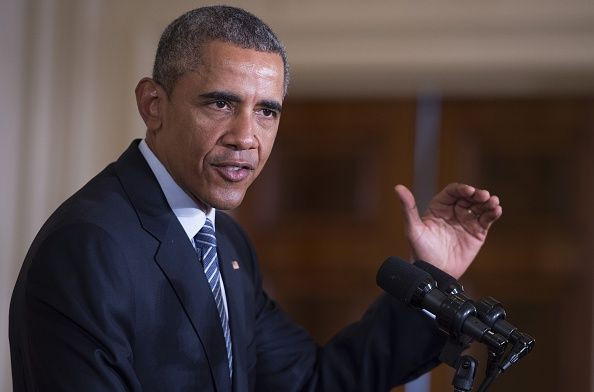Ruling On US Emissions Plan A Win For Obama

In a big victory for the Obama administration, a U.S. federal court on Thursday rejected a bid by 27 states to block its Clean Power Plan, the centerpiece of its strategy to combat climate change by reducing carbon emissions from power plants.
A three-judge panel of the U.S. Court of Appeals for the District of Columbia Circuit issued a brief order denying an application seeking to stay the rule while litigation continues.
The states, led by West Virginia, and several major business groups in October launched the legal challenges seeking to block the Obama administration's proposal to curb carbon dioxide emissions from power plants.
More than a dozen other states and the National League of Cities, which represents more than 19,000 U.S. cities, filed court papers backing the Environmental Protection Agency's rule.
The rule aims to lower carbon emissions from the country's power plants by 2030 to 32 percent below 2005 levels. It is the main tool for the United States to meet the emissions reduction target it pledged at U.N. climate talks in Paris last month.
For President Barack Obama, executing his climate change strategy would be a legacy-defining accomplishment.
"We are confident that the plan will reduce carbon pollution and deliver better air quality, improved public health, and jobs across the country," the White House said in a statement on Thursday.
The court action means the regulation remains in place but it is not the final word in the legal fight. The appeals court still has to hear oral arguments on June 2 and decide whether the regulation is lawful.
The decision by the court to deny the stay is a "good sign" for the EPA when it argues the merits of its case this summer, said David Doniger of the climate and clean air program at the Natural Resources Defense Council.
"Most of the time it's a pretty good hand, but I wouldn't overplay it yet," he told Reuters. "We will have to duke it out on the merits of the case now."
West Virginia's Attorney General Patrick Morrisey, who led the multi-state challenge, said he is confident their challenge will succeed when the court decides the case on its merits.
He said West Virginia and other states will consider asking the Supreme Court to take a "second look" at whether to freeze the regulation.
Many states, even those that have sued the EPA over the Clean Power Plan, have started to work on plans to comply with the regulation. Their plans are due for EPA approval in September.
Jonathan Adler, a professor at Case Western Reserve University School of Law, said states are "more likely to fall into line" and try to comply with the rule now that the stay has been denied.
It would have been a “significant setback” for the government if the challengers’ request had been granted, he added.
(Reporting by Lawrence Hurley and Valerie Volcovici; Editing by Will Dunham and Cynthia Osterman)
© Copyright Thomson Reuters 2024. All rights reserved.





















